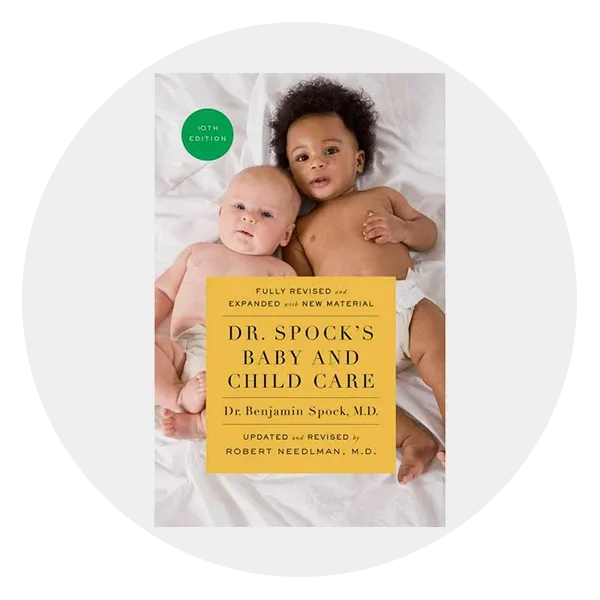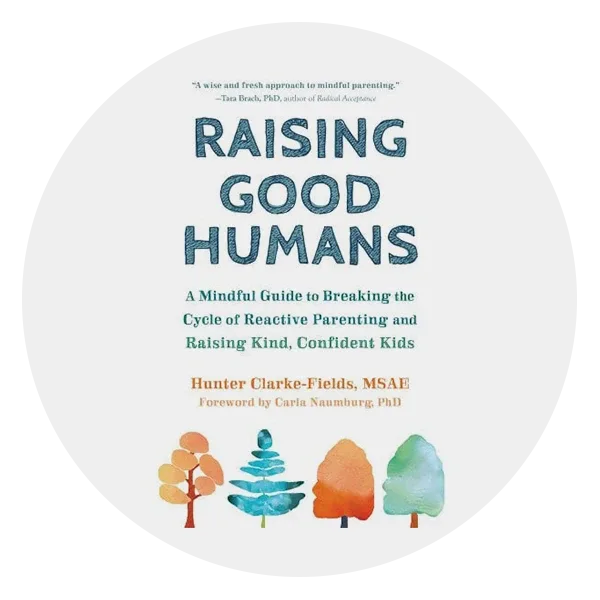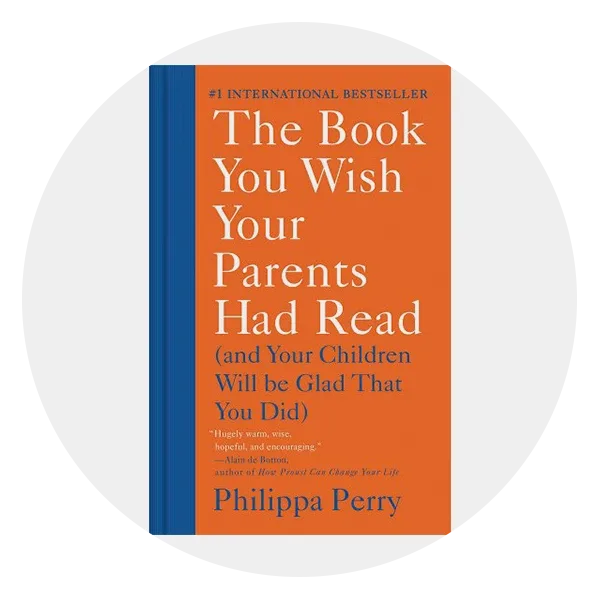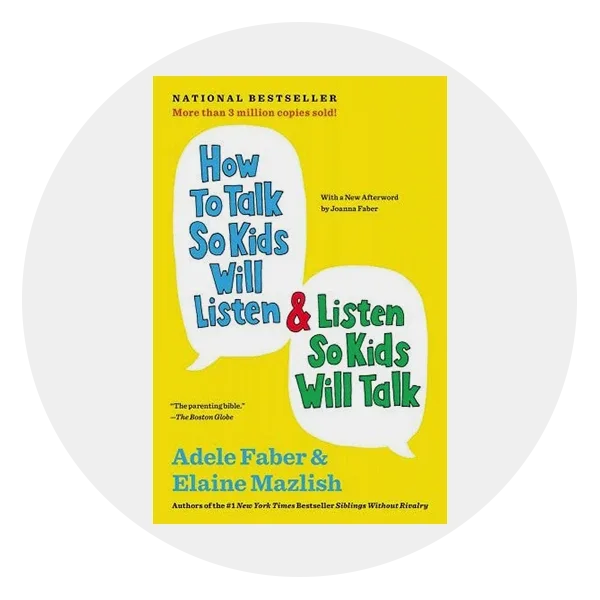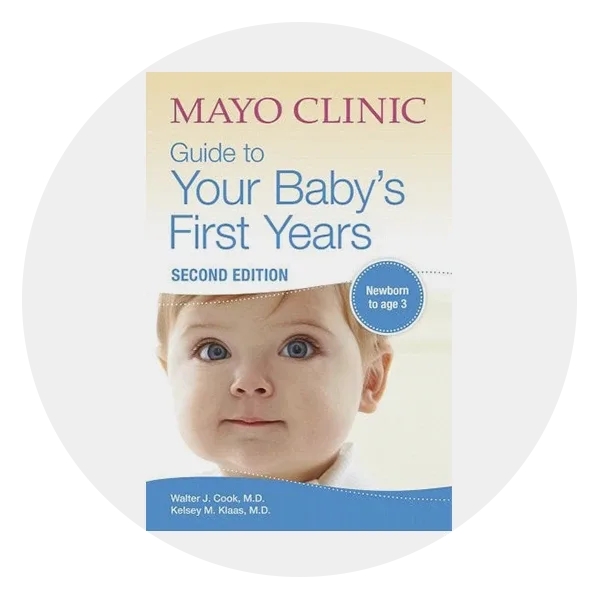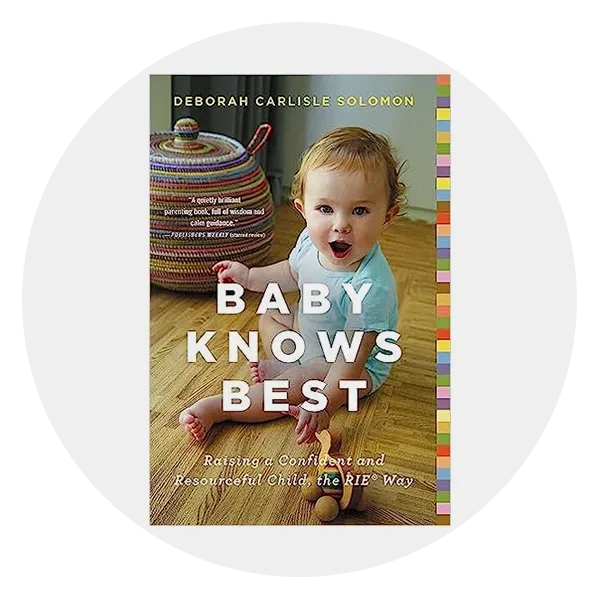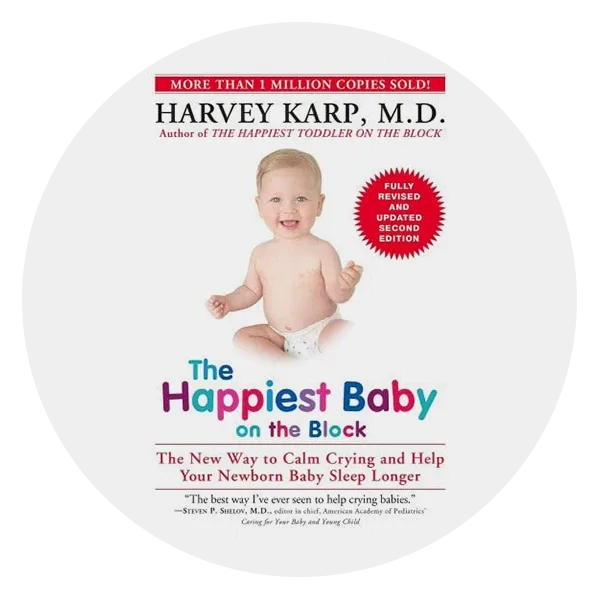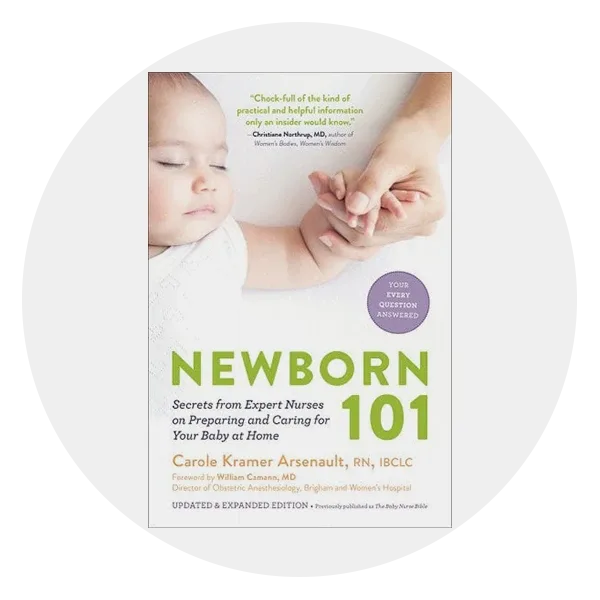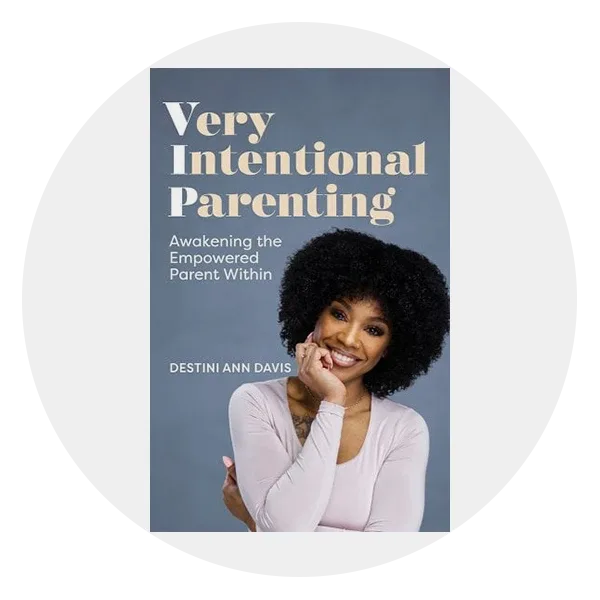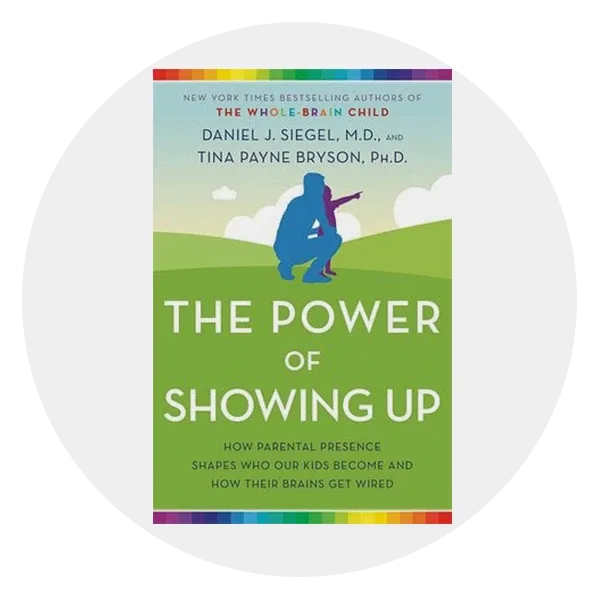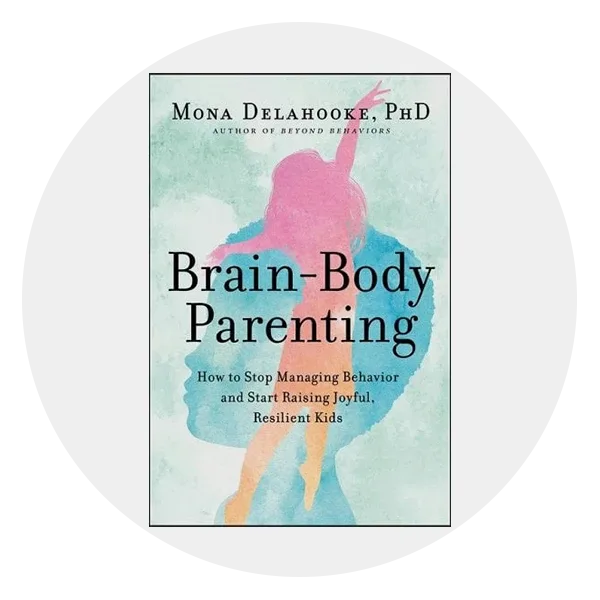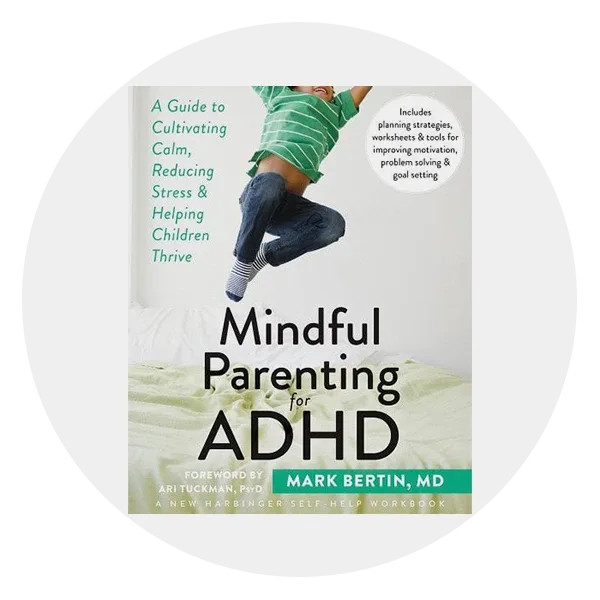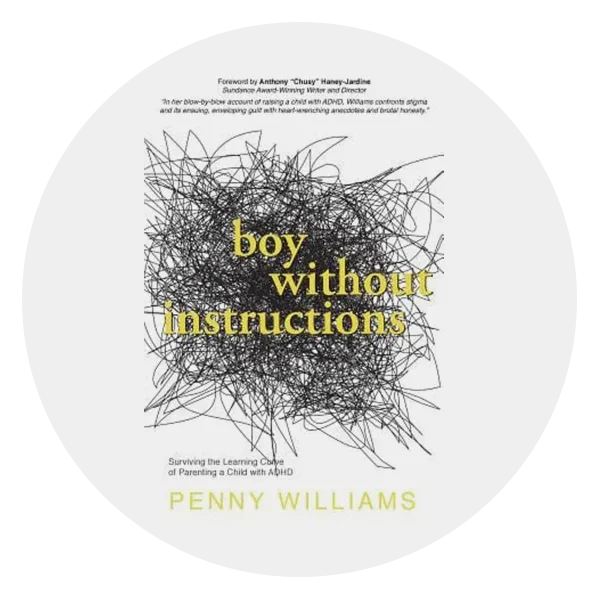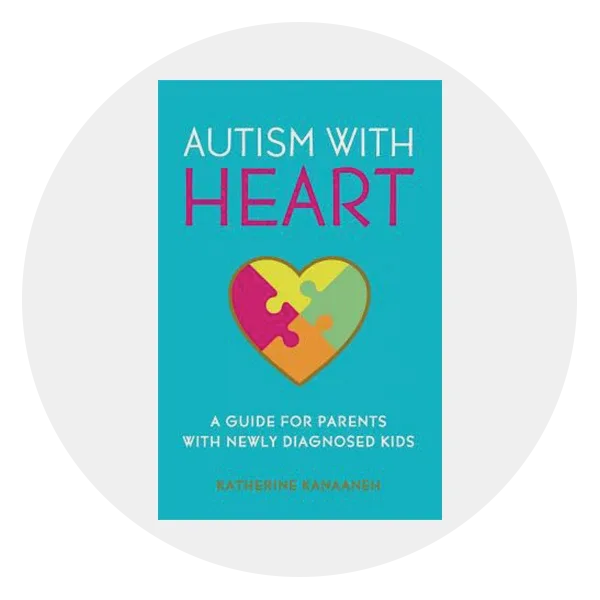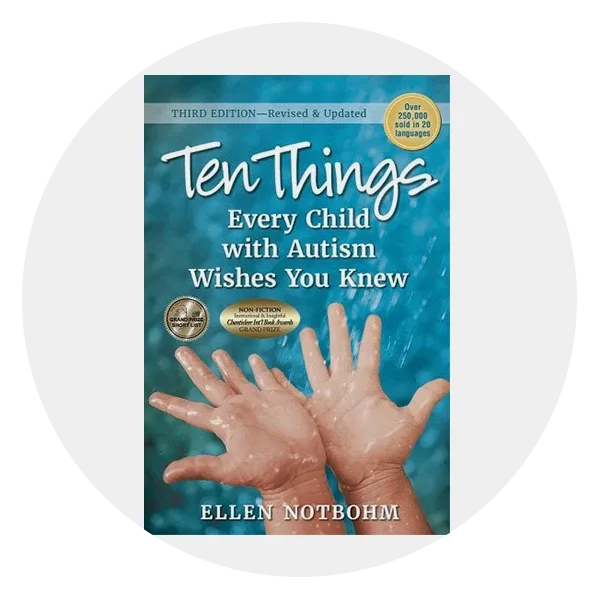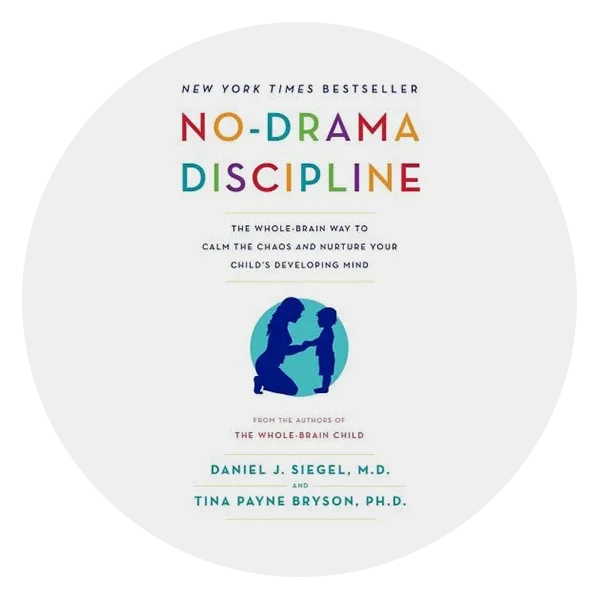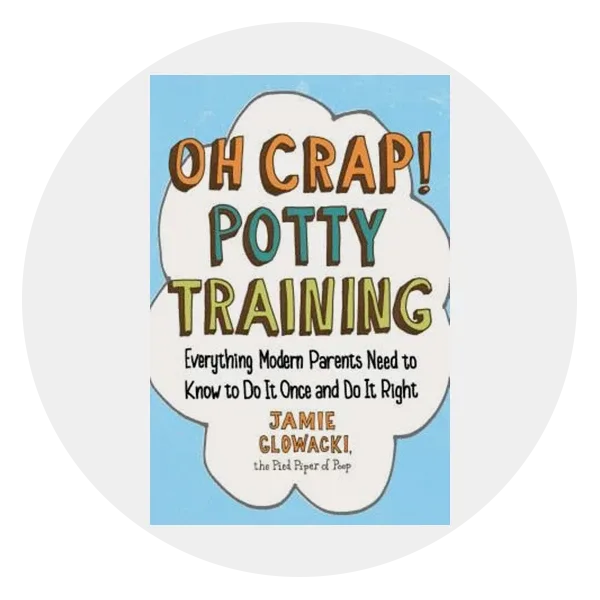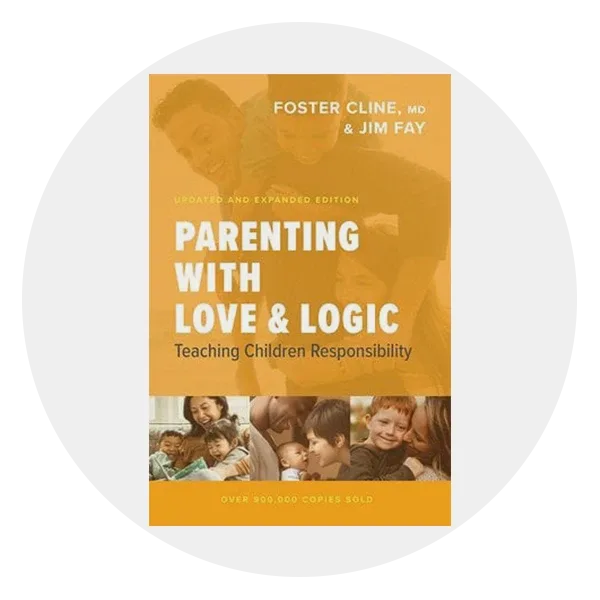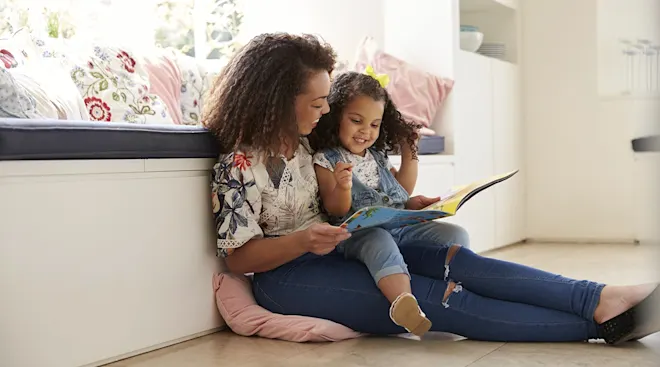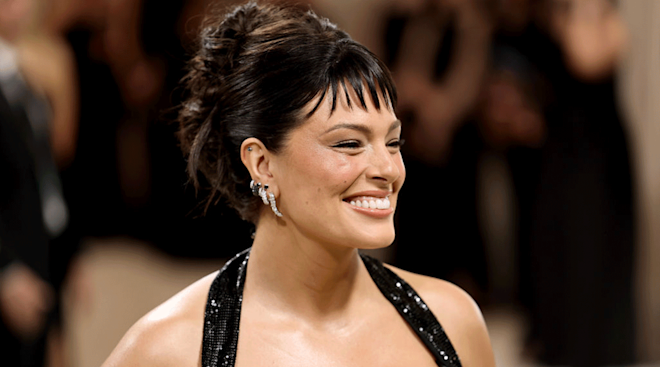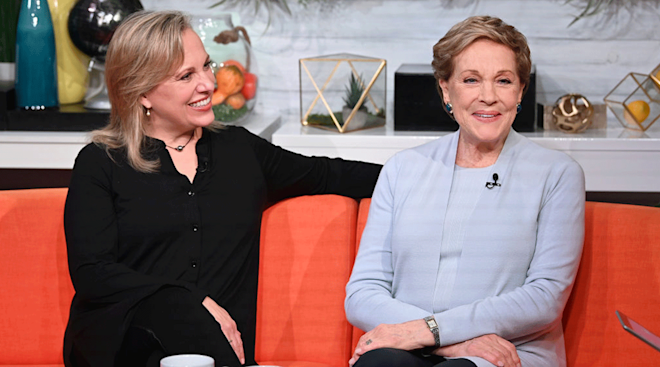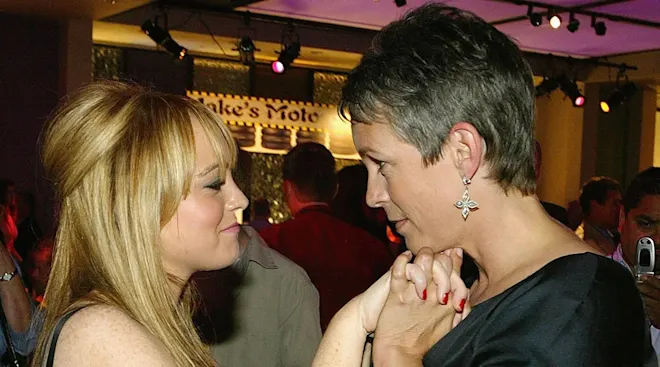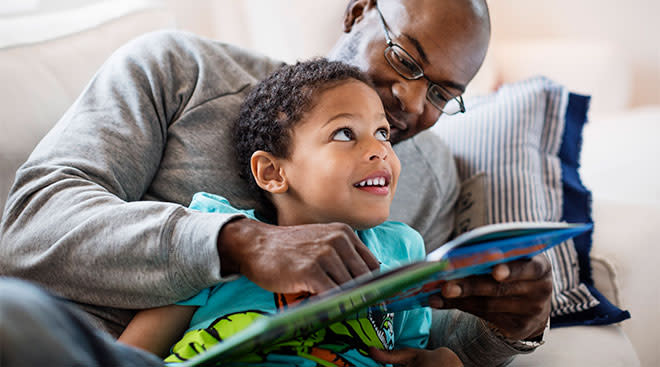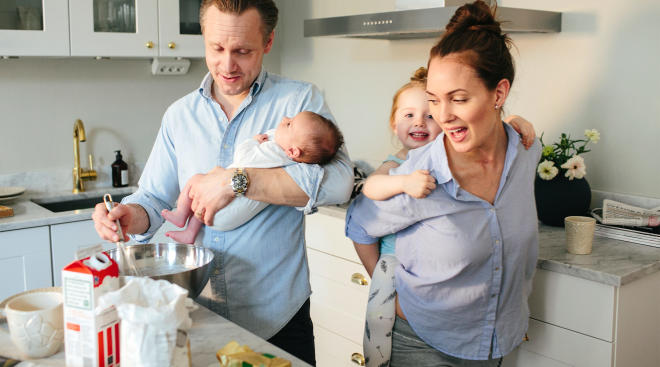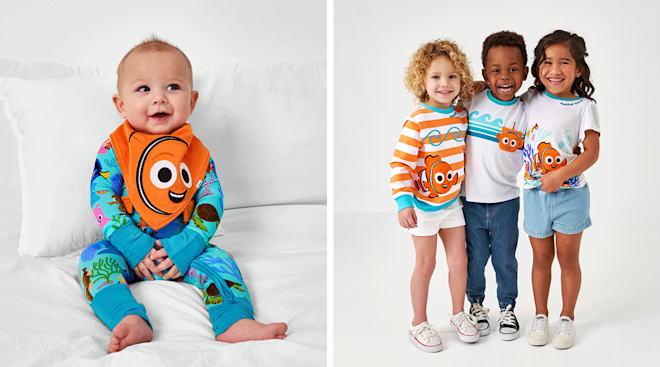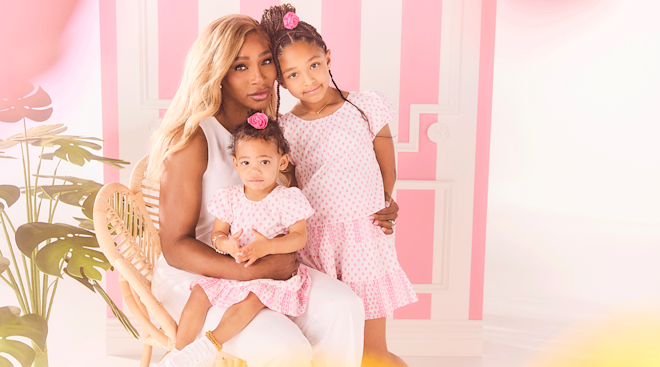The Best Parenting Books to Help You Raise Your Child
Adulting is hard all on its own, but tack on a baby, and there are days when being a grown-up will seem downright impossible. Sure, you can ask friends, family, your pediatrician and even Internet strangers for advice on how to tackle every parenting problem thrown your way, but parenting books might be the smarter route to take.
That’s because for just nearly all of the baby-related issues you’re dealing with—trouble sleeping, picky eating, potty training and definitely discipline—there are parenting books to bolster you with the knowledge you need. And while the advice other individuals give may be helpful, parenting books allow you to understand solutions based on facts and expert advice, all sans judgment. Read on for expert advice on what to look for in parenting books, as well as our picks for the best parenting books available now.
As cliché as it sounds to say that there’s no instruction manual for parenting, it’s also very true. Sarah Bren, PhD, a licensed clinical psychologist, tells us, “Finding the most effective parenting strategy is less about strictly following dogma, and more about figuring out how to be flexible, creative and, above all, attuned to your unique child.” That’s why parenting books are so appealing, because they can give you a wealth of information, advice and solutions to draw from when you need and feel ready for it. And you don’t have to incorporate everything you learn into your own parenting “toolbox,” as Bren describes it; rather, your aim should be “to become more educated consumers of parenting content, taking what works and leaving what doesn’t.”
That doesn’t mean there aren’t some key features to look out for when choosing the right parenting book for you. Bren says that a great parenting book should be:
- Credible. At the end of the day, no one has all the right answers in the ever-puzzling parenting game, but there are professionals who have dedicated entire careers to the study of healthy and happy child development. With that in mind, Bren says it’s important to seek out books with reputable authors. “Does the author cite research or data to back up what they’re saying? Does the author have an educational or experiential background in child development, early childhood education, parental, infant or child mental health?” If you can spot expert-backed support inside, you’re on the right track.
- Contemporary. Bren notes that the overall understanding of “child development and brain development has come a long way in the last 10-15 years. However, some parenting strategies that are still prevalent today have roots in earlier, outdated theories.” As you’re browsing the stacks at your local bookstore or shopping online, don’t get caught up in what might have been your parents’ or even your grandparents’ parenting book of choice—it’s not that kids today are different than they were back then, it’s just that we know more about their inner workings and can use that to tailor and personalize our approaches to parenting.
- Approachable. A good parenting book will meet you where you are in your parenting journey and make you feel confident about your choices. We rarely benefit from even the most useful information if it’s delivered to us in a way that leaves us feeling judged or criticized, notes Bren. She suggests looking for a book “written in a way that feels approachable to you and leaves you feeling empowered rather than pressured, judged or shamed.”
- Self-aware. Going back to that “universal” truth about parenting: There’s no single “right” way to raise a child. Even the most modern approaches have pitfalls to match their merits, and that’s okay! When you’re on the hunt for your go-to guide for parenting (and you might find a bunch of reads that feel right for you), keep an eye out for the ones that have a point of view, but readily acknowledge that there may be limitations or pieces of advice that don’t align with every family. “A little humility goes a long way,” says Bren. “No one book, author or school of thought is going to be the right fit for every family in every situation, and a book that can acknowledge that there will be things in it that you can take if they work for you and leave if they don’t is usually a good sign,”
- Free of gender stereotyping. In 2023, any parenting book that’s “contemporary” will probably also be non-gendered. Bren doesn’t take issue with books specifically written for “moms” or “dads” because she says “in many families, moms and dads take on different roles in the family system and have different parenting experiences—and we all like to read books that allow us to see ourselves in the story the author is telling.” The important thing is to find a book that’ll be interesting enough to have you take in the information and use it in a helpful way—if that means seeking out a motherhood- or fatherhood-geared read, then “by all means, do it; find a book that speaks to you,” says Bren. Just be sure the book doesn’t reinforce unhealthy (and untrue) stereotypes or normalize antiquated perceptions of a mom or dad’s place in the family dynamic.
New parenting books hit the shelves every week, so whether you’re about to have your first baby or already have a few in your crew, we totally get feeling overwhelmed—even seasoned parents have their moments. Some of these parenting books are well-known classics; others explore the tenets of gentle parenting in fostering a child’s emotional intelligence, self-esteem and overall well-being; and some are written completely from a mom or dad’s POV or for the respective audiences. With this list of parenting books and some expert endorsements from Bren (a family-focused clinical psychologist and mom of two herself) to guide you, rest assured, your library will be well-stocked for every curve ball parenthood throws at you.
Brain development book
Looking for a practical and straightforward guide toward growing calmer, happier kids in the midst of daily parenting struggles? This one’s got you covered. This pioneering book, created by a neuropsychiatrist and a parenting expert, takes a scientific approach to parenting by addressing the steps to foster healthy brain development. Don’t let the neuroscience angle intimidate you, though; everything is written for the “lay parent,” in easy-to-understand language. It’s one of Bren’s favorites and something she goes back to a lot with her own clients, sharing that when “we can understand how [our children’s] brains and bodies work and how that determines their behaviors, we are so much more effective in helping them regulate and make choices about their behaviors.”
Number of pages: 192 | Year published: 2012 (for illustrated edition)
Trusted guide to parenting
Yes, there are quite a few classics in the parenting book game, but Dr. Spock’s “trust your instincts and do what feels right" take is one that still tracks nearly seven decades later—especially in its 10th edition, which infuses modern advice from a Spock contemporary, Robert Needlman, MD. The latest iteration looks at topics like child obesity, immunizations, environmental health, alternative family structures and screen time and provides parents with an up-to-date glossary of medications they’ll likely encounter at one time or another in their child’s life. The trusted companion guide is considered one of the best parenting books out there—a must-have for any well-stocked parent’s bookshelf.
Number of pages: 992 | Year published: 2018 (for expanded edition)
Mindful parenting manual
You can be the most intentional parent ever, then fly off the handlebars every once in a while when things with your child go sideways (be it a meltdown at the playground, a fight about what they are or aren’t eating or something sticky, gross or otherwise unpleasant staining their perfectly curated outfit for family pictures—yes, we’ve been there lots of times). You’re only human, right? But with this mindful manual, you’ll learn how to stop the hair-trigger reactions by calming the stress you’re feeling in the moment first. Beyond that, you’ll also learn how to nurture respectful forms of communication, effective conflict resolution techniques and feelings-affirming reflective listening styles. It’s a great book to reset any unhealthy patterns or ingrained reactions in ourselves (the ones we learned from our own parents) and model calmer, kinder and more confident responses in our children. Monkey see, monkey do!
Number of pages: 184 | Year published: 2019
Mindful and insightful parenting book
Speaking of those “ingrained reactions,” The Book You Wish Your Parents Had Read helps you get to the root of some of your most sensitive triggers in all of your relationships (with your child, with your partner, etc.)—spoiler alert, 9 times out of 10, you learned the less-than-ideal reaction from your parents. In 320 pages, British psychotherapist Philippa Perry gives you the tools and insights you need to foster better relationships with the people who matter most to you in the world—and if you’re a parent, your child(ren) are a big part of that picture. The writing is super engaging, warm, compassionate and relatable, and similarly to the above title, Perry’s take invites parents to break free from damaging “generational” patterns and forge a much more connected and mindful approach to child raising.
Number of pages: 320 | Year published: 2020
Parenting book on communicating
For all you parents who’ve ever wanted to close the communication gap between you and your child, take heart: This pick by Adele Faber and Elaine Mazlish is your bridge. Bren says How to Talk So Kids Will Listen & Listen So Kids Will Talk is “a great book for giving parents practical, effective and easy tools for increasing cooperation in kids and increasing parent's confidence in setting warm and firm boundaries.” Moreover, if you’re more of a visual learner, you’ll love the cute and memorable cartoons aligned with the authors’ tips in a “do this, not that” format.
Number of pages: 384 | Year published: 2012
When you’re a new parent, the learning curve is steep. Lucky for you, you’re not alone. Parenting experts have your back with the best books for new parents to lead you through the often-rough journey that lies ahead.
Complete parenting guide
Bringing home a brand new baby can be scary business, but stashing this parenting book on your shelf is like having expert pediatricians on call and ready to field your questions whenever you need them. Topics covered include proper nutrition, indoor and outdoor safety, diapers and toilet training and ideas for comforting a fussy baby—anything you may or may not expect in their first three years of life. There are month-by-month growth charts to make sure baby’s meeting their age-appropriate milestones, but even more appealing are themes like single parenting, work-life balance and delayed growth and development (along with ASD diagnoses and newborn conditions/complications). No stone is left unturned in this thick, but infinitely valuable baby book.
Number of pages: 624 | Year published: 2020
Informative parenting book on raising resourceful children
Babies will learn incredible things over the course of their lives, but that’s not to say that they don’t have some innate smarts and intrinsic motivation to learn and grow from birth and through infancy. The Resources for Infant Educarers (RIE) parenting approach emphasizes respect for infants and young children as competent individuals, and in this book, Solomon offers specific strategies for parents who want to foster that strong sense of self, confidence and resilience in their child from the very beginning. It’s one of the books Bren says has informed much of her own parenting approach and is “very positively aligned with healthy development.” A book like this is also a great choice for parents who need a break from all the worrying and a reason to relinquish control. If your baby is comfortable and safe, they’re good; they’ll let you know if they need something—so you can relax a bit and follow their lead.
Number of pages: 288 | Year published: 2015
Parenting book on soothing children
A calm baby usually means a happy baby, which is why this book has been one of the most popular of the new parenting books. Thousands of parents have learned to rely on the soothing and sleep solutions created by Harvey Karp, MD. And the fully updated second edition includes takes on infant sleep, bed sharing, swaddling, breastfeeding and SIDS risks. Karp references the fourth trimester a lot throughout the book to explain how newborns have different needs and behaviors that mimic their time in the womb. He also provides clear and concise step-by-step instructions on how to pacify an unsettled, irritable, colicky baby using his famous soothing techniques.
Number of pages: 352 | Year published: 2015
Expert advice parenting book
Leaving the hospital after just having a baby a few days prior can feel like you’re on a road to nowhere, but with Newborn 101 in your passenger seat, by former labor and delivery nurse and newborn care specialist Carol Kramer Arsenault, the trip will be a whole lot smoother. We love this book because it’s written in a very “ask the expert” way. You can see that other parents have questions just like you in the first year, and you’ll get responses that never feel like prescriptions, but rather suggestions or musings (that you can decide what to do with) from a nurse who has almost three decades of baby care under her belt. “Milestones” pages will give you a quick cheat sheet for what’s happening developmentally with your baby at A to B month markers (seven to nine months, 10 to 12 months, etc.), and the “baby care tips” in quick call-out blocks are easily digestible nuggets of info that have been helping parents for years.
Number of pages: 368 | Year published: 2017
Parenting guide on behavior
In your baby’s first year, there will be lots of times when you’ve fed them, changed them, played with them and helped them fall asleep (and soundly, for that matter) only to find they’re unhappy again—crying, screaming, what have you. This is when a “stress-free” guide to your baby’s behavior comes in clutch. In this book, new parents can learn about the developmental “leaps” baby may go through in the first 20 months of their life. These phases set baby up to master new skills, fine-tune certain behaviors and strengthen their perception of the world around them. Just remember that every baby develops at their own pace, so it’s your responsibility to stay in tune with their needs and meet them with an appropriate level of responsiveness and support.
Number of pages: 464 | Year published: 2019
Best gentle parenting books
We approached Bren with questions about Sarah Ockwell-Smith’s “gentle parenting” style, what it means and how it’s been leveraged into even more contemporary, hybrid parenting movements. “Similar to respectful parenting, responsive parenting, positive parenting or conscious parenting, we are generally referring to a parenting approach that prioritizes fostering a strong parent-child relationship that’s rooted in mutual understanding, empathy and respect,” says Bren.
With gentle parenting, a parent’s role is authoritative but warm, akin to a teacher or compassionate leader, and a child is “seen as a whole being from birth with their own perspectives, preferences, opinions and agency, who is deserving of respect and compassion,” says Bren. There’s also a distinct departure from shame-based punishment in favor of more open and honest communication, empathy and positive reinforcement.
Intentional parenting book
You’ve probably seen certified parenting coach and working mom Destini Ann Davis on TikTok or Instagram before, but if you haven’t, her feeds are totally worth the follow! In her first book, Very Intentional Parenting, Davis offers parents advice on how to cultivate peaceful and positive relationships with their children. It’s almost a real-life, actionable example of the age-old flight attendant mantra to put the oxygen mask on yourself before putting it on your children, because the book encourages improvement from within (through self-care and personal growth) as a means to unlock a better parenting approach with positive, non fear- or trauma-based reinforcement. It’s truly an indispensable resource for parents in pursuit of a nurturing and empowering environment to raise their children.
Number of pages: 272 | Year published: 2022
Parenting book on secure attachment relationships
Bren loves this parent-friendly read because it offers “a fantastic overview of attachment theory and how we can support secure attachment relationships with our kids.” By showing up and being available for your child, time after time, you’re responding to their needs—and that’s what secure attachment (your child being able to reliably count on you, because that’s what you’ve shown them, historically) is all about. Yes, it’s the physical act of being there and actively engaged in your child’s experience—“quality of presence,” as Siegel and Bryson call it—but it’s also an acknowledgment of four building blocks of a child’s healthy development. If you can ensure your child feels the “Four S’s” (safe, seen, soothed and secure) whenever they call on you, then you’re on the right path. Better yet, this book is a lifesaver for any parent who might need to find a way back to a secure attachment style with their child. If you feel you’ve missed out on important milestones or have had external circumstances threaten your ability (or willingness) to “show up” for your child, all hope is not lost. Reparation is more than possible if you put in the work—and this book shows you how!
Number of pages: 256 | Year published: 2020
Behavioral parenting guide
Tiny humans can throw huge wrenches in seemingly happy-going days (and many of those times, it’s on a dime; everything is good, things are swell, and then something happens that just initiates the meltdown of the century). Parents everywhere can commiserate about that reality, but in her book, child psychologist Mona Delahooke asks readers to stop trying to correct the “bad” or “out of control” behavior and instead shift focus—like a total paradigm shift. Rather than wondering what’s going on in their brain, you should consider what might be happening to their entire body, specifically the entire nervous system, which produces feelings, behaviors and the fight-or-flight reaction that can cause emotional outbursts or tantrums.
Number of pages: 352 | Year published: 2022
There are already plenty of challenges with parenting, but when your child has attention deficit hyperactivity disorder (ADHD), those challenges can be heightened. Turn to these ADHD books for parents for tips on how best to adapt and change your home life to help your ADHD-diagnosed child be the best he can be.
Mindful parenting guide for ADHD
Mindfulness isn’t just for the yoga mat; in fact, it’s a big part of modern parenting. And if you’re raising a child who’s just been diagnosed with ADHD or who has struggled with inattention or impulse control for years, this book is great to turn to. The format is very reader-friendly and although it’s written by a pediatrician, it uses non-technical language that’s approachable (and doesn’t make you want to put it down). Bertin offers guidelines to help you create skill-building plans for your child and manage particular challenges at home and in the classroom. The best part? There are downloadable materials (think: guided audio meditations, worksheets and handouts) to go along with the lessons learned in each chapter.
Number of pages: 256 | Year published: 2015
Memoir-style parenting book
This parenting book offers a firsthand depiction of a parent’s perspective while raising a child with ADHD. This is not your typical parenting book, offering step-by-step, how-to information. Instead, this memoir-style parenting book takes you on one mother’s journey, allowing you to see what real life is like when your child has ADHD, the challenges and hardships that come with it and the steps the author takes to move in a more positive direction. To echo Bren’s notes about what constitutes a good parenting book, Boy Without Instructions is so special because it’s raw and authentic, and allows parents to feel seen and like they’re not alone.
Number of pages: 304 | Year published: 2014
Finding out your child is autistic can be devastating for a parent and leave you not knowing what to do next. Your goal is to help your child lead the most independent and happiest life possible, but because every child with autism is different, it can be frustrating to rely solely on the advice of other parents. That’s where these autism books for parents can help.
Parenting book for children with autism
An autism diagnosis carries with it a strong lack of control. This book focuses on what to do to improve the life of not only the child with autism but also the parents of an autistic child. Through strategies, routine-building and sage advice, readers will find relief during a time that can feel chaotic. Learning to thrive is a goal for the entire family—and as a mom of three (one of who has special needs) herself, author Katherine Kanaaneh infuses this must-have guide with tidbits parents, siblings, aunts, uncles, cousins and grandparents all can enjoy.
Number of pages: 190 | Year published: 2016
Guide to children with autism
At the end of the day, every parent strives to be an advocate for their child’s well-being and success, but when neurodivergence is concerned, there’s a learning curve. This book gets you acquainted with ten core characteristics of autism that can affect your child’s perceptions of and reactions to the physical, sensory and social environments around them.
Number of pages: 184 | Year published: 2019
Before you know it, baby will be laughing, talking and taking their first steps, becoming a full-on toddler! And while this stage is super-fun, it can also present a whole new host of challenges. Think taming tantrums, tripping over toys you just put away minutes ago and training your little one to use the potty. Before you let your toddler take over, pick up some tips and tricks from these toddler parenting books.
How-to guide for parents with toddlers
If you liked the scientific approach to parenting in The Whole-Brain Child, or (like Bren) you haven’t come across a Daniel J. Siegel book you didn’t fall immediately in love with, then this follow-up for toddlers and older children may be the only thing that stands between you and your responsible and respectful child. Discipline doesn’t have to involve punishment, shame or trauma, but it does have to be effective for your children. This helpful how-to encourages you to find your discipline philosophy, learn what works and doesn’t work with your kiddos (at various ages and stages), set clear and consistent boundaries and expectations and troubleshoot the tantrum phases of toddlerhood.
Number of pages: 288 | Year published: 2016
Potty training guide
We can’t cover toddler parenting books without recommending potty training books for parents. While there’s an obvious incentive of not shelling out constant cash for diapers may be your reward, getting your toddler on board with potty training is no easy feat. This parenting book shows you how to get it done right quickly the first time with a proven six-step process. Plus, online resources provide extra support for potty-pooped parents.
Number of pages: 288 | Year published: 2015
Guide focused on temperament and child development
If there was an owner’s manual for raising your children to be responsible and ready for the real world one day, this would be it. Focused on temperament and child development, this parenting book helps you lay groundwork for strategies that will teach your kid responsibility and build character, without the anger, nagging or bribery (which can happen with tired and at-times impatient parents). This book is definitely one you can read alongside your partner, because you probably each have an idea of how you want to foster responsibility in your child, starting at a young age—and that’s a good thing, because “parents don’t need to be carbon copies of one another,” says Bren. “It’s ok for each parent to have their own relationship with their child and for that relationship to have a different style than the other parent.”
Number of pages: 272 | Year published: 2020
To help streamline your shopping and highlight the best parenting books on the market today, we curated a diverse list of classic parenting titles (for the first few years), gentle parenting introductions and a number of supportive selections for parents raising neurodivergent children. We relied on our own experiences as parents, and combined our knowledge with that of a clinical psychologist. We also read user reviews to get the lowdown on how helpful these books were for parents and families, and didn’t consider anything with less than an average four-star rating.
Interested in learning more about our editorial process? Read about how our team develops and reviews all articles here.
Sarah Bren, PhD, is a licensed clinical psychologist and mom of two, whose passion is helping parents find their inner confidence and raise healthy, resilient kids. Bren is the host of the podcast Securely Attached, and the creator of the parenting courses The Authentic Parent: Finding Your Confidence in Parenthood and The Science of Tantrums. She is the co-founder of Upshur Bren Psychology Group in Pelham, NY, where she treats parents, children and families.
Navigate forward to interact with the calendar and select a date. Press the question mark key to get the keyboard shortcuts for changing dates.


































